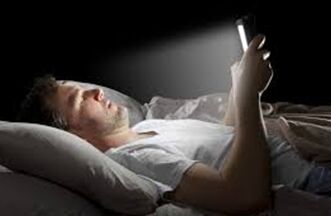研究显示 睡觉时暴露于光线下可能引发抑郁症
|
Any kind of light past bedtime -- from a gap in the curtains to a flash of your smartphone -- could pave the way to depression, new research warns. Researchers found even the smallest hint of light exposure in the bedroom during the night could cause depressive symptoms by confusing your body clock. Previous studies have linked nocturnal light exposure to a disruption in the body's sleep-wake cycle, but have struggled to explain how this impacts depression.
While the new study by researchers at Nara Medical University does not solve the mystery, it provides some of the clearest evidence to date that the link is stronger than most realize. Researchers led by Dr Kenji Obayashi recruited 863 elderly adults, with the average age of 72 years, who did not have depressive symptoms -- anxiety or a persistent feeling of sadness -- at the start of the two-year study. They measured light levels in their room by placing light meters at the heads of everyone's bed to determine the amount of light their subjects would see while going to sleep. About 710 participants slept in a completely dark room, while the rest of the subjects were exposed to light at night. The participants were also asked to keep sleep diaries and completed surveys that monitored the development of depressive symptoms. Researchers found that compared to the dark group, people exposed to more than 5 lumens of light at night had a significantly higher risk of developing depressive symptoms. This isn't the first study to link nocturnal light exposure to the mood disorder. Research published in a 2009 issue of Behavioral Brain Research found mice that were put in a room that was lit 24 hours a day had more depressive symptoms than those that had a normal light-dark cycle. |









